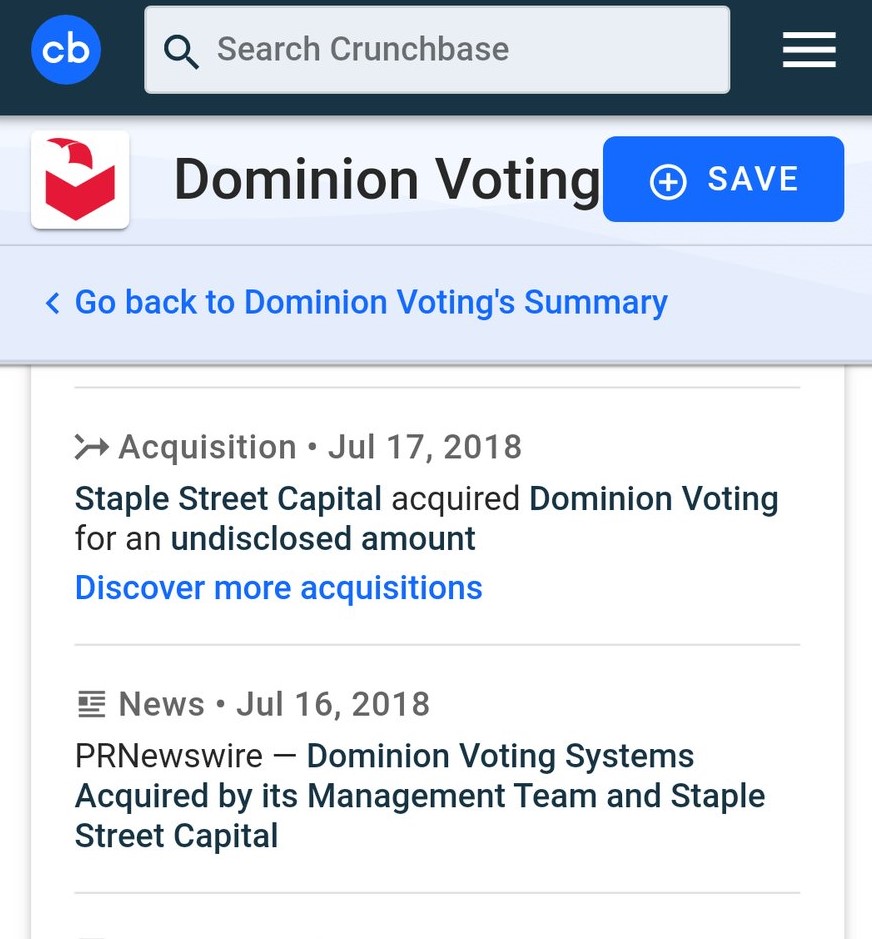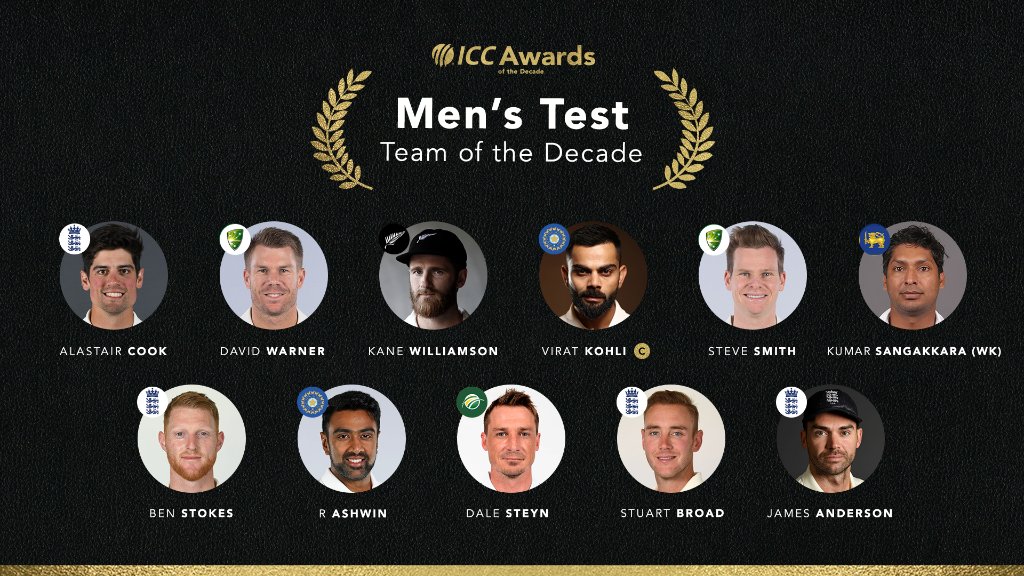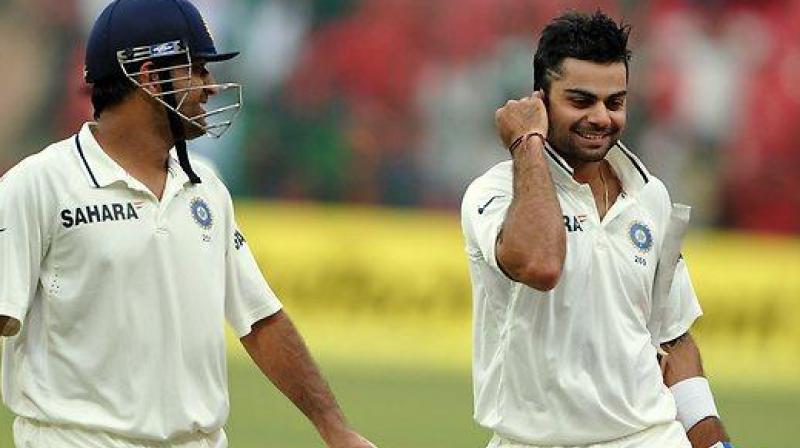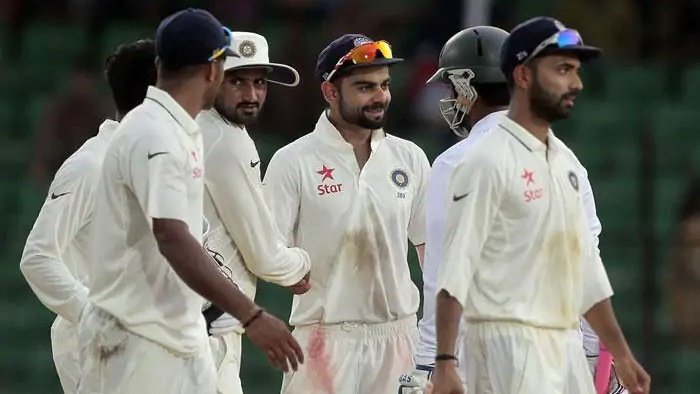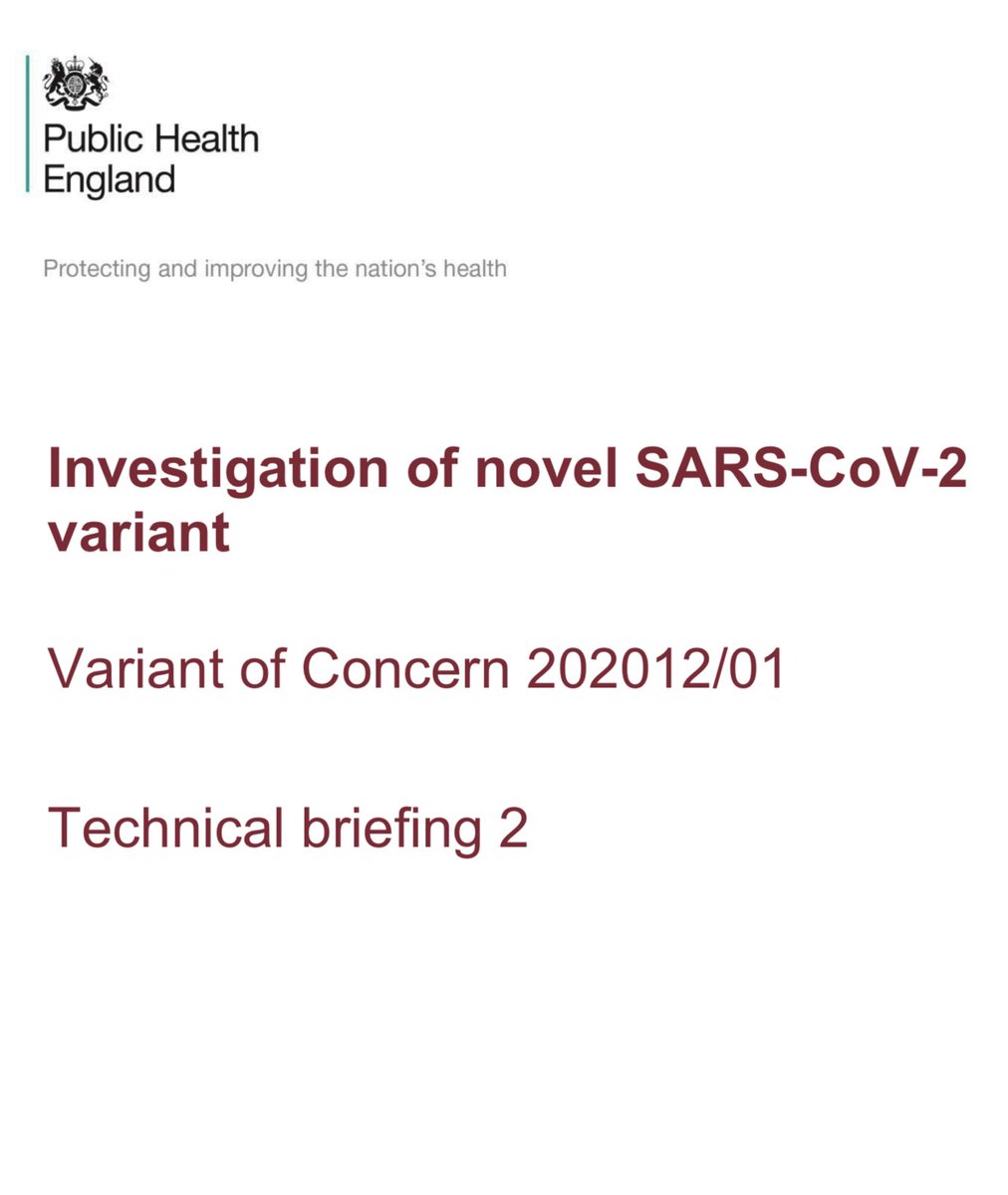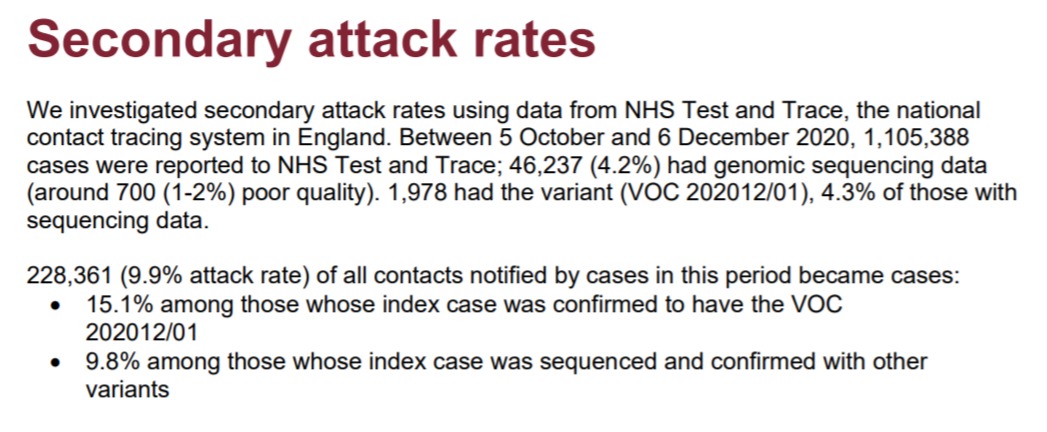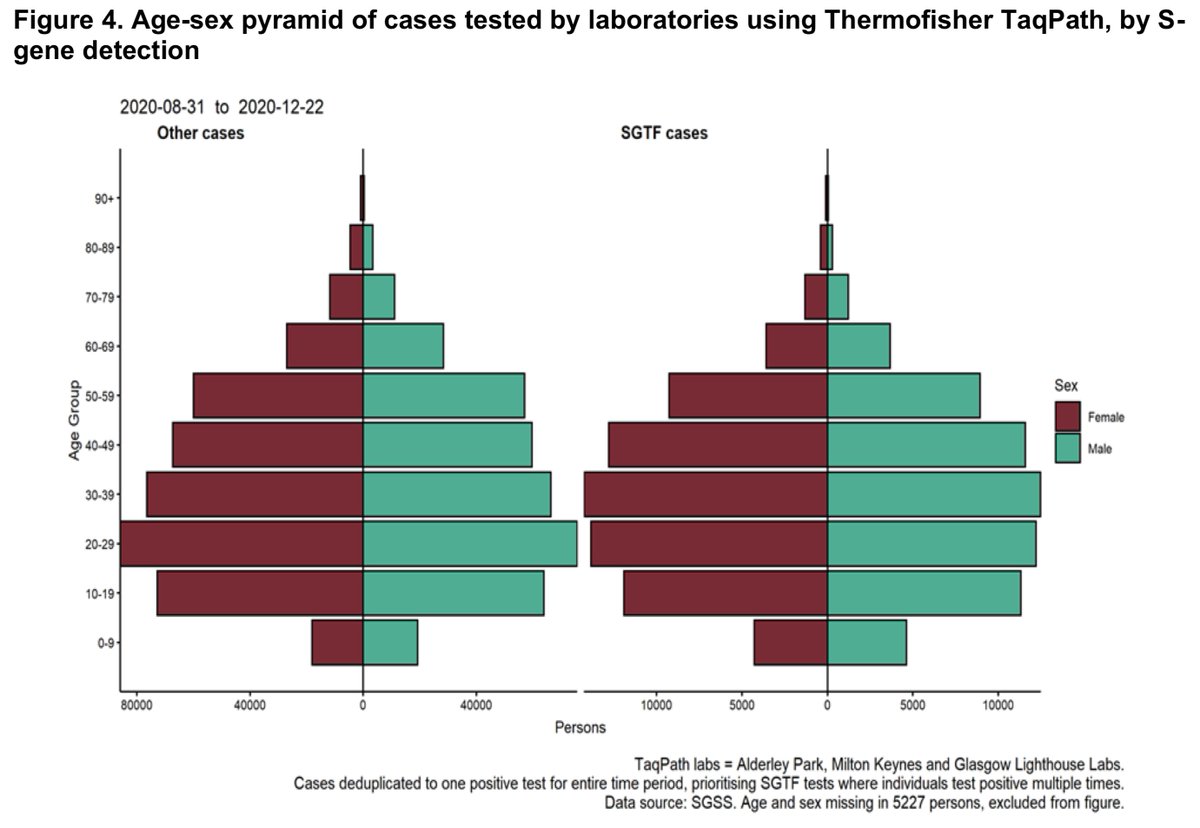Alex1Powell's Categories
Alex1Powell's Authors
Latest Saves
For me, an incredible group of young scholars doing highly relevant science was the #Bestof2020. Here are my favorite 2020 paper by each of several young scholars with whom I get to work
To see where some of these folks were last year see this thread
let's start this #BestOfResp2020 with @UM_IHPI
It's time for #BestOf2019 lists
— Jack Iwashyna (@iwashyna) December 26, 2019
I thought I would try something new. Here are my single favorite paper by each of several young scholars with whom I get to work. They are all rock-stars. In lots of cases these were hard choices 'cause they were very productive this year...
.@msjoding changed the way I look at pulse oximetry in @nejm, rethinking my bedside care
This paper has rightly gotten a lot of
1/ Our research letter on racial bias in pulse oximetry measurement, out today in NEJM https://t.co/6dLuNGosxp pic.twitter.com/XXsfWfc5dv
— Michael Sjoding (@msjoding) December 17, 2020
But I think it is useful to look at it as an example of what makes Mike's work so interesting. A grant to build a dataset just to look at this project would, I think, have been un-fundable. Instead Mike had built an infrastructure to look at ARDS detection
When @msjoding came across Prof Amy Moran-Thomas's provocative @BostonReview essay (https://t.co/VB63h74o9U) he was able to pivot that data infrastructure to ask an important question...
{list below}
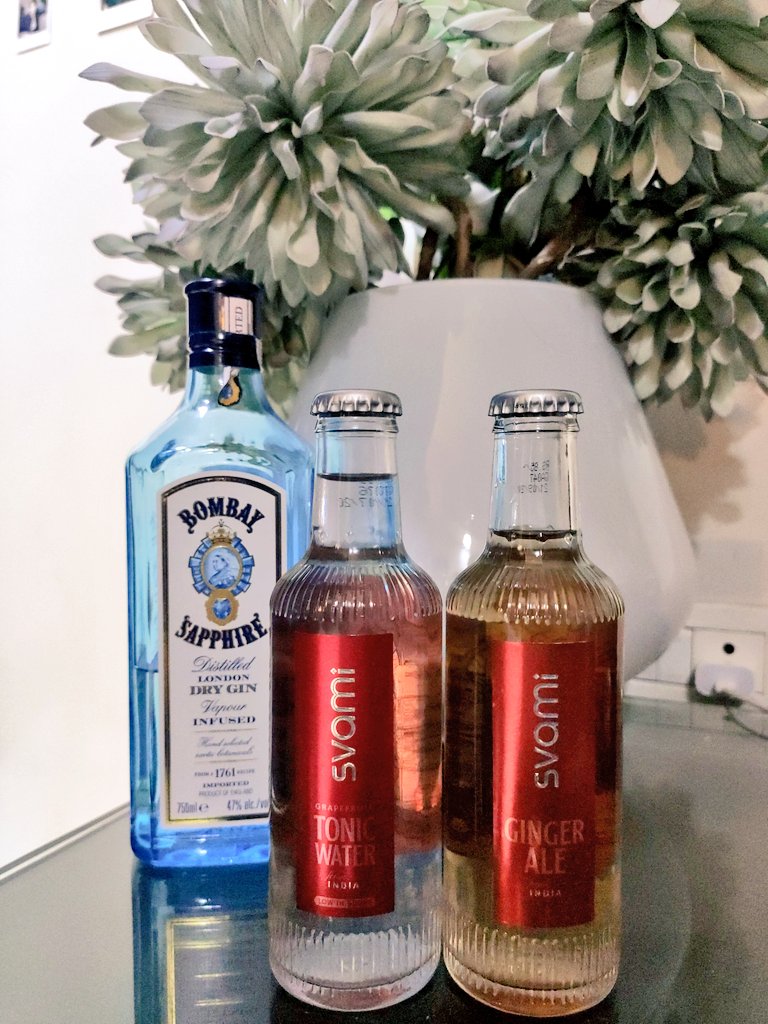
-> Because D2C brands are able to directly establish a relationship with the consumer, they are able to provide greater personalization & faster TAT for after-sales issues. I have personally interacted with many co-founders of these brands after purchase to provide feedback.
-> Lack of infrastructure shackles allows these brands to increase their CACs & rope in consumers with cashbacks, rewards, subscriptions, and other gifting bundles. Brands have also collaborated together in the form of cross-overs (Dope x Svami, The Whole Truth x KC Roasters).
-> I personally discovered half of these brands through @CRED_club. CRED claims that their 3 million members spend as much as 40% higher than average consumers. If this holds true, CRED Pay, launched in collaboration with @Razorpay, is a golden opportunity for D2C brands.
-> The craft coffee revolution has reached India. Newer flavours, blends, roast profiles, and the finer subtleties of coffee are finding takers. Here's a tweet from @miten highlighting some of these amazing brands on CRED.
https://t.co/hfMocvmBEK
{list below}
fellow coffee lovers \u2615\ufe0f
— miten sampat (@miten) December 23, 2020
super excited to share that @CRED_club Store now has the widest collection of Coffee beans you can find in India!
50+ varietals of beans, 7 brands (+5 soon) + gear
we aim to be the best place to satisfy that espresso urge! https://t.co/VgQvmdn51Q pic.twitter.com/P64L3jozSU
A few quick thoughts (although very much first
It seems like the bill contains a mix of some of the options outlined in our @instituteforgov explainer on UK ratification
https://t.co/WUa3MSkABL

Clause 29 seems to be a catch all clause - so existing domestic law is treated as subject to the UK-EU deal where it has not been specifically amended to implement it (where this is required) (more from @ProfMarkElliott
https://t.co/FEBrdG09Cy)

Cl 29 of the Future Relationship Bill is certainly interesting. If I\u2019ve understood correctly, it is, in effect, an automatic Henry VIII clause that requires existing domestic law to be treated as subject to the Agreements to the extent that they have not been implemented. pic.twitter.com/nyL52YOslD
— Mark Elliott (@ProfMarkElliott) December 29, 2020
Also seem to be separate provisions for the social security coordination protocol to form part of domestic law (clause 26)
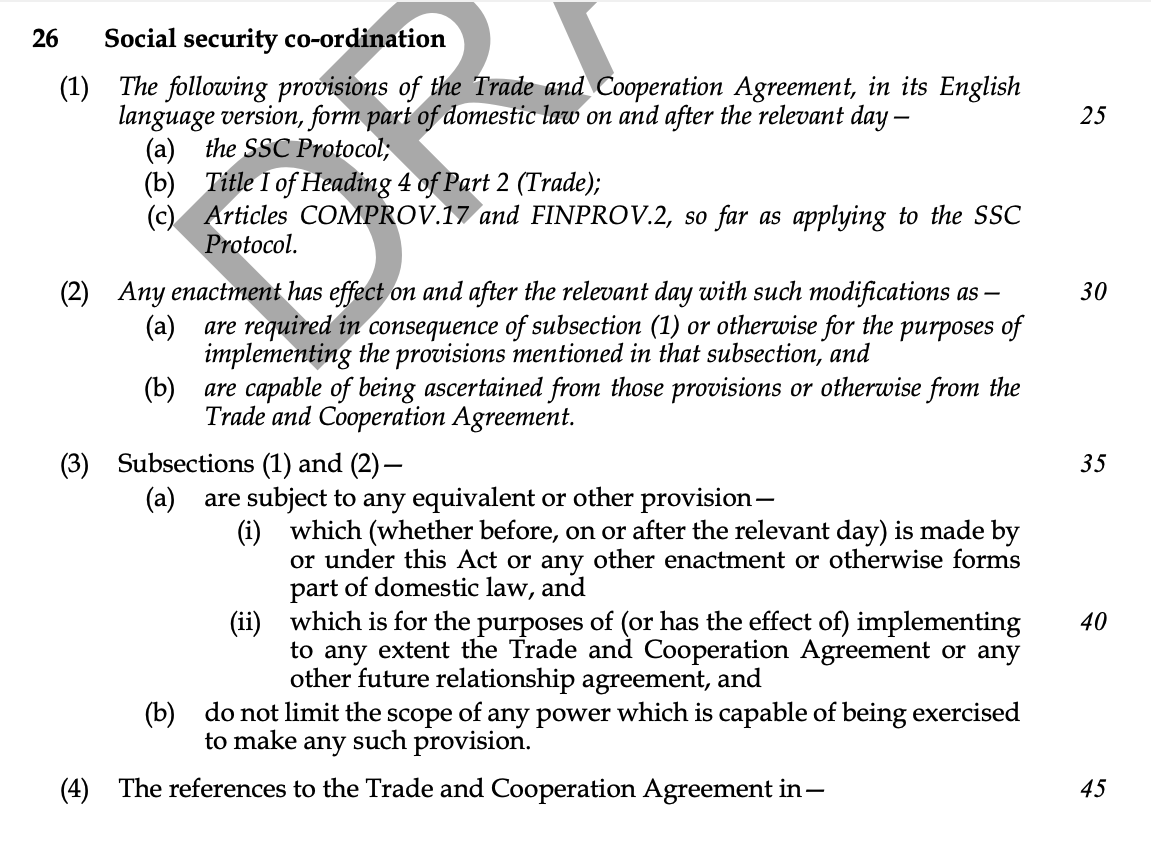
Clause 31 includes a general implementating power (a big Henry VIII power, that allows the use of secondary legislation to do anything an act of parliament could do). Seems to be affirmative. Exercisable by gov and also devolved administrations. Inevitable given short time.




















